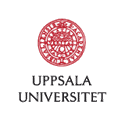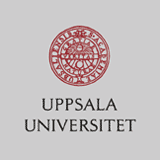Kvalitativa forskningsmetoder – grundläggande inriktningar, 7,5 hp
| Kursnummer | 26 |
| År | 2021 |
| Typ | Methodcourse |
| Spår | - |
| Max antal deltagare | 12 |
| Sista ansökningsdag | 2020-11-30 |
| Språk | Sven |
| Kursansvarig | Katarina Hjelm |
| Institution | Inst. för folkhälso- och vårdvetenskap |
| Besöksadress | BMC |
| Postadress | Box 564, 751 22 Uppsala |
| Datum | vecka 6-15 |
| Lokal | BMC |
| Kurslängd | 8 dagar |
| Kursrapport | Kursrapport |
| Kursplan |
Beskrivning
Undervisningen genomförs DIGITALT
Under kursen studeras den vetenskapsteoretiska och filosofiska grunden för kvalitativ forskning och teoretisk och praktisk kunskap utvecklas i att välja och hantera olika vetenskapliga metoder för insamling, tolkning och analys av kvalitativa data.
Inlärningsmål
Efter genomgången kurs skall studenten visa på kunskaper om, förståelse för samt förmåga att relatera, problematisera, analysera och kritiskt granska den vetenskapsteoretiska och filosofiska grunden för kvalitativ forskning. Detta för att utifrån aktuell frågeställning kunna välja lämplig forskningsansats och metod/er för insamling, analys, tolkning och presentation av kvalitativa data. Studenten skall särskilt visa på förmågan att kunna värdera och förhålla sig till frågor om validitet i forskningsprocessen och nyckelbegreppen trovärdighet, reflexivitet och triangulering
Innehåll
- Vetenskapsteoretiska grunder för kvalitativ forskning; epistemologi och ontologi, samt orientering om kvalitativa metoders framväxt.
- Relationen mellan forskningsproblem, metodval och vilken typ av kunskap som genereras med olika kvalitativa metoder
- Olika typer av forskningsdesign och urvalsförfarande
- Olika typer av kvalitativa datainsamlingsmetoder; intervju individuellt/grupp/fokus-grupp, observationer, skriftliga dokument
- Kvalitativa metoder för analys och tolkning av data; Fenomenologi, Fenomenografi, Grounded theory, Hermeneutik, Innehållsanalys
- Bedömning av kvalitet, giltighet och tillförlitlighet i kvalitativa studier
- Att presentera, rapportera och försvara framtagna resultat
Ramschema - detaljschema kommer senare
VECKA 6 2021
Dag 1 9/2 Tisdag - Introduktion till kursen
10.15-10.45
10.45-12.00
13.15-16.00
Dag 2 10/2 Onsdag
10.15-12.00
13.15-15.00
15.15-16.30
VECKA 9
Dag 3 Onsdag 3/3
10.15-12.00
13.15-15.00
Dag 4 Torsdag 4/3
10.15-12.00
13.15-14.00
14.30-15.00
VECKA 12
Dag 5 23/3 Tisdag
10.15-12.00
13.15-14.45
Dag 6 24/3 Onsdag
10.15-12.00
13.15-15.00
VECKA 15
Dag 7 12/4 Måndag
10.00-12.00 Examinationsseminarier
13.00-17.00 Examinationsseminarier
Dag 8 13/4 Tisdag
9.00-12.00 Examinationsseminarier
13.00-16.00 Examinationsseminarier
16-16.30 Utvärdering
Undervisning
Förkunskaper/Behörighet:
För att vara behörig till kursen så behöver du vara antagen till utbildning på forskarnivå.
Obs: Du kan söka till kursen innan du har blivit antagen till utbildning på forskarnivå men sökande till kursen rankas utifrån datum för antagning till utbildning på forskarnivå enligt Uppdok (Ladok).
Besked om antagning kommer 1-2 veckor efter sista ansökningsdag, via e-post.
Kursens planering och omfattning:
Kursen omfattar 5 ECTS, 1,5 ECTS motsvarar en veckas heltidsstudier omfattande 40 timmar. Kursen består av schemalagd undervisning (se schema), med översiktsföreläsningar, seminarier och gruppaktiviteter, och egna studier upp till 40 timmar/vecka. Tiden för egna studier är avsedd för inläsning av kurslitteratur, inklusive rekommenderade vetenskapliga artiklar (enligt lista), och arbete med planering av gruppaktiviteter kring 1) formulering av syfte och val av metod, 2) design av intervjuguide och 3) examinationsuppgift.
Examination
Undervisningsformer:
Undervisningen bygger på ett vetenskapligt arbetssätt med problemlösning och kritisk analys. Arbetsformerna som används är översiktsföreläsningar, litteraturstudier, övningsuppgifter individuellt och/eller i grupp, och seminarier.
Examination:
Individuell skriftlig projektplan som ventileras vid seminarium med respondent-och opponentskap.
Litteratur
Patton M.Q. Qualitative Research & Evaluation Methods (4 ed). London: Sage Publications Ltd, 2015.
Silverman D. Interpreting qualitative data. Methods for analyzing talk, text and interaction. London: Sage Publications Ltd, 2015.
Marton F, Booth S. Learning and awareness. London: Routledge, 1997.
A list of recommended scientific articles will be provided by the course organizer before the start of the course.
Lärare
Katarina Hjelm, professor IFV, Uppsala Universitet
Carina Berterö, professor IMH, Linköpings universitet
Kontakt
Kursledare: Katarina Hjelm, IFV, Uppsala Universitet. Email: katarina.hjelm@pubcare.uu.se
Kursadministratör: kursadministrationenIFV@pubcare.uu.se


